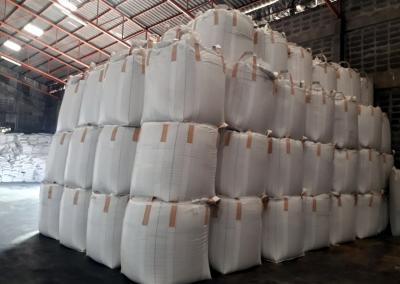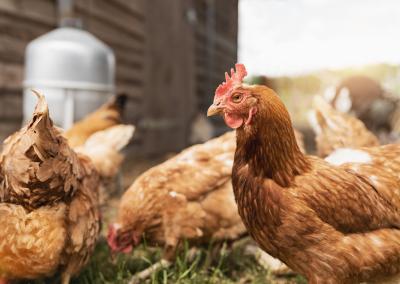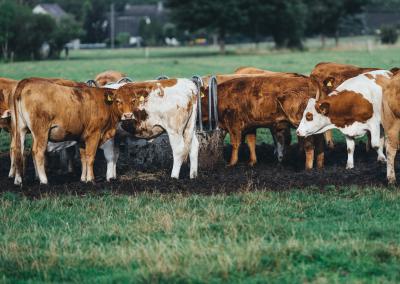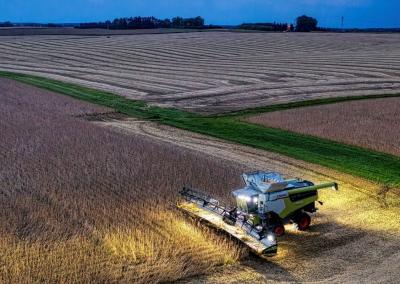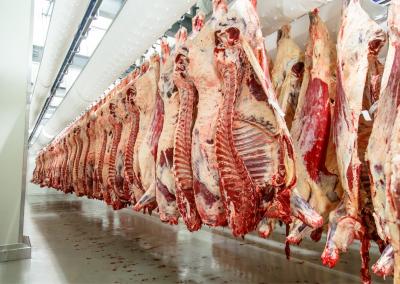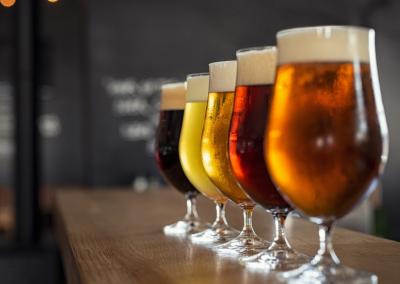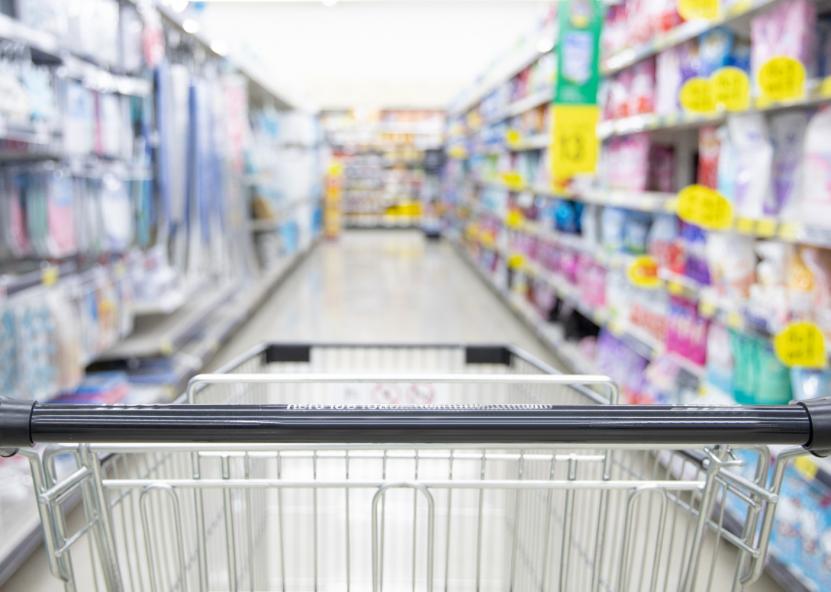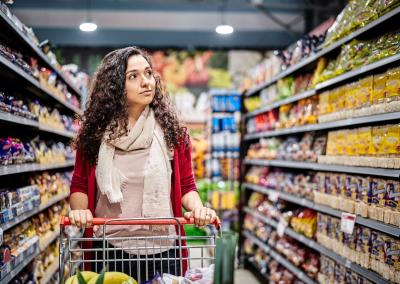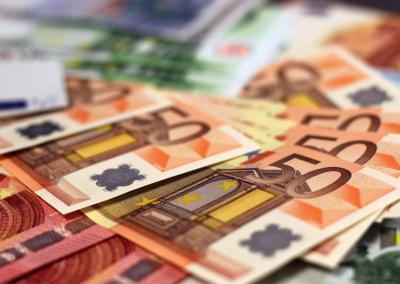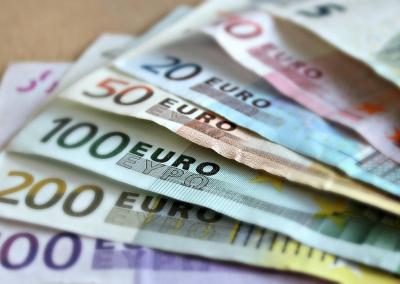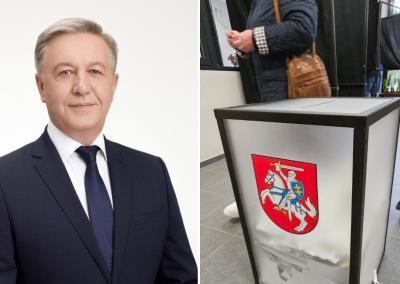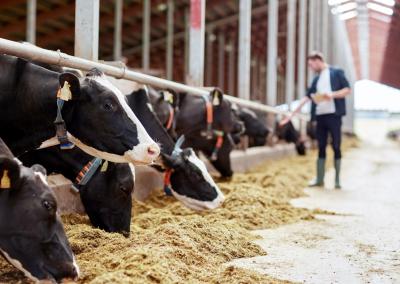Committee on Rural Affairs in favour of extending sanctions against Russia and Belarus
The Parliament's Committee on Foreign Affairs has agreed to extend the ban on imports of Russian and Belarusian agricultural products and foodstuffs into Lithuania for another year until 2 May 2026.
The Committee agreed by consensus on Wednesday.
The amendment to the Law on the Imposition of Restrictive Measures in the Context of Military Aggression against Ukraine, which will extend the sanctions, was also supported by members of the ruling „Nemunas aušros“ and the opposition Lithuanian Peasants', Greens', and the Union of Christian Families' factions, Vytautas Jucius and Bronis Ropė, who abstained from the vote during the amendment's presentation in the plenary session of the Seimas.
V. Jucius did not take part in the debate in the committee, while B. Ropė reproached that if Latvia, Estonia and Poland were not subject to the strict sanctions that Lithuania had adopted, Russian products entering the European Union (EU) through these countries „would become legal“.
„And then they move all over the EU, including to Lithuania“, – said B. Ropė.
„It is a pity why there is no coordination and agreement with neighbouring countries to apply the same sanctions“, – added the MP.
„It's not that we are doing the opposite, but we are doing a policy that is not in line, because the EU imposes duties and receives revenue from those duties, while we are doing a complete ban on imports," the politician said.
I. The EU has no right under international conventions to impose bans on imported food products, he said, especially in transit.
Sanctions have significantly reduced imports
National sanctions essentially include restrictions on natural persons – Russian and Belarusian nationals. However, they have been criticised by some politicians for proposing to continue the ban on imports of specifically Russian and Belarusian agricultural products.
As Deputy Foreign Minister Gabija Grigaitė-Daugirdė told the Committee on Rural Affairs, the reasons behind the sanctions have not disappeared – Russia's invasion of Ukraine is still ongoing.
Gediminas Tamashauskis, Deputy Minister of Agriculture, told the committee that the impact of the sanctions „is pronounced“.
„There is a clear decrease in imports“, – said the Vice-Minister.
Anthanas Venckus, head of the International Affairs and Export Promotion Division of the Ministry of Agriculture, said imports of these products fell sharply last year following the imposition of national sanctions.
In 2023, he said, Lithuania would import €100 million worth of agricultural and food products directly from Belarus, while in 2024, when they were still transported without restrictions for half a year, imports fell to €60 million.
Meanwhile, Lithuania imported €140 million worth of these products from Russia last year and €52 million the year before.
„This means that Lithuanian consumers were buying either Lithuanian, EU or Ukrainian agri-food products, as the volume of imports of Ukrainian agri-food products has increased,“ said Mr Venckus at the Committee.
„In 2025, if the restriction was in place for a full year, the volumes would be much lower still“, – he added.
A. Venckus also stressed that from May onwards, origin verification of Russian grain in transit will come into force.
„In reality, the transit through Lithuania is very small and insignificant. Compared to Latvia, there is nothing to compare, it is much, much smaller," said Mr Venckus.
He stressed, among other things, that Lithuania would propose to apply the same procedures for Russian grain to Latvia.
„This is the next step for us, because our wish is that as little as possible of Russian grain passes through the EU, and thus through the infrastructure of the Baltic countries“, – said Mr Venckus
Russian and Belarusian products will become uncompetitive
G. Tamashauskis, Deputy Minister of Agriculture, said that Lithuania's sanctions will be reinforced by the European Commission's proposal to the Council to increase import duties on all agricultural products from Russia by 50%.
G. Grigaitė-Daugirdė added that import duties should rise to 50% within three years.
BNS previously wrote that the new proposal is aimed at targeting the 15% of Russian agricultural goods that are not affected by the high tariffs that came into force last July.
A. Venckus also pointed out that a 50% increase in import duties on agricultural products would make Russian and Belarusian food products uncompetitive in the EU.
„This means that in principle all food products will be subject to that specific 50% duty, which will effectively make Russian and Belarusian agricultural food products uncompetitive on the EU market,“ predicted the Ministry of Agriculture official.
Two weeks ago, when the Seimas was deciding whether to adopt a proposal to extend national sanctions against Russians and Belarusians for another year, the draft was not supported by a number of members of the ruling "Nemunas aušra" (one against and 11 abstentions) and the "Lietuvos valstiečių, zelené" (Lithuanian Peasants, Greens) and the "Kristianiškų rodziny uzība" (Union of Christian Families) groups (three votes against and three abstentions each).
This week, Remigijus Žemaitaitis, leader of "Nemunas aušros", said that the group had decided to support the continuation of the sanctions against Russia and Belarus.
The current version of the law on national restrictions is valid until 3 May 2025 – the government proposes to extend its validity until 2 May 2026.
The law suspends the acceptance and issuance of visa applications and residence permits for Russian and Belarusian citizens in Lithuania, provides for more detailed border checks, prevents Russian citizens from acquiring real estate in Lithuania, and so on.


